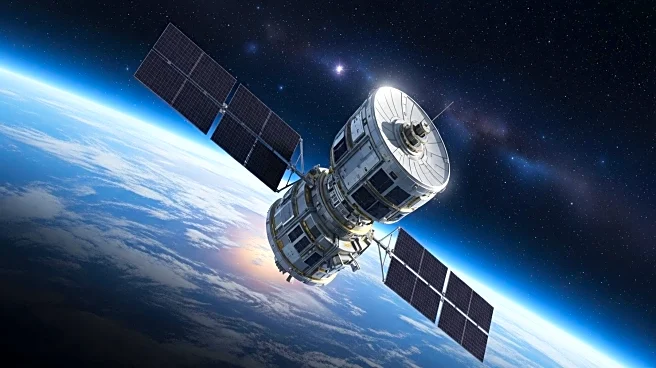What's Happening?
The U.S. Chamber of Commerce's Global Aerospace Summit featured discussions on space policy, highlighting efforts from the Trump administration to reduce regulatory barriers for space operators. FCC Space Bureau chief Jay Schwarz emphasized the importance of cautious regulation to avoid stifling innovation in the burgeoning space industry. Schwarz, a former economist, noted that overregulation could significantly impact the industry's projected growth rate of approximately 9% annually. He estimated that even a slight reduction in growth to 8.7% could result in a $5 trillion loss over 30 years. Additionally, Vast CEO Max Haot supported NASA's revised CLD Phase 2 plan, which aims to expedite technology deployment in orbit and encourage competition among space station companies. Haot defended NASA's decision to set a 30-day habitation requirement as a preliminary step, arguing that shorter missions could facilitate faster technological advancements.
Why It's Important?
The discussions at the conference underscore the critical balance between regulation and innovation in the space industry. The potential economic impact of overregulation, as highlighted by Schwarz, illustrates the stakes involved in policy decisions. A thriving space industry could contribute significantly to the U.S. economy, with projections indicating substantial growth. The approach taken by NASA and industry leaders like Haot reflects a strategic focus on fostering competition and accelerating technological progress, which could enhance the U.S.'s position in global space exploration. The emphasis on short-term missions as a stepping stone suggests a pragmatic approach to achieving long-term goals in space habitation and exploration.
What's Next?
The space industry is poised for continued growth, with stakeholders closely monitoring regulatory developments. The FCC's approach to regulation will likely influence the pace of innovation and investment in the sector. Companies like Vast are preparing for upcoming missions, with plans to test critical systems in anticipation of future launches. The outcomes of these initiatives could shape the trajectory of space exploration and commercialization, impacting both domestic and international space policy. As the industry evolves, ongoing dialogue between government agencies and private companies will be crucial in navigating the challenges and opportunities ahead.









